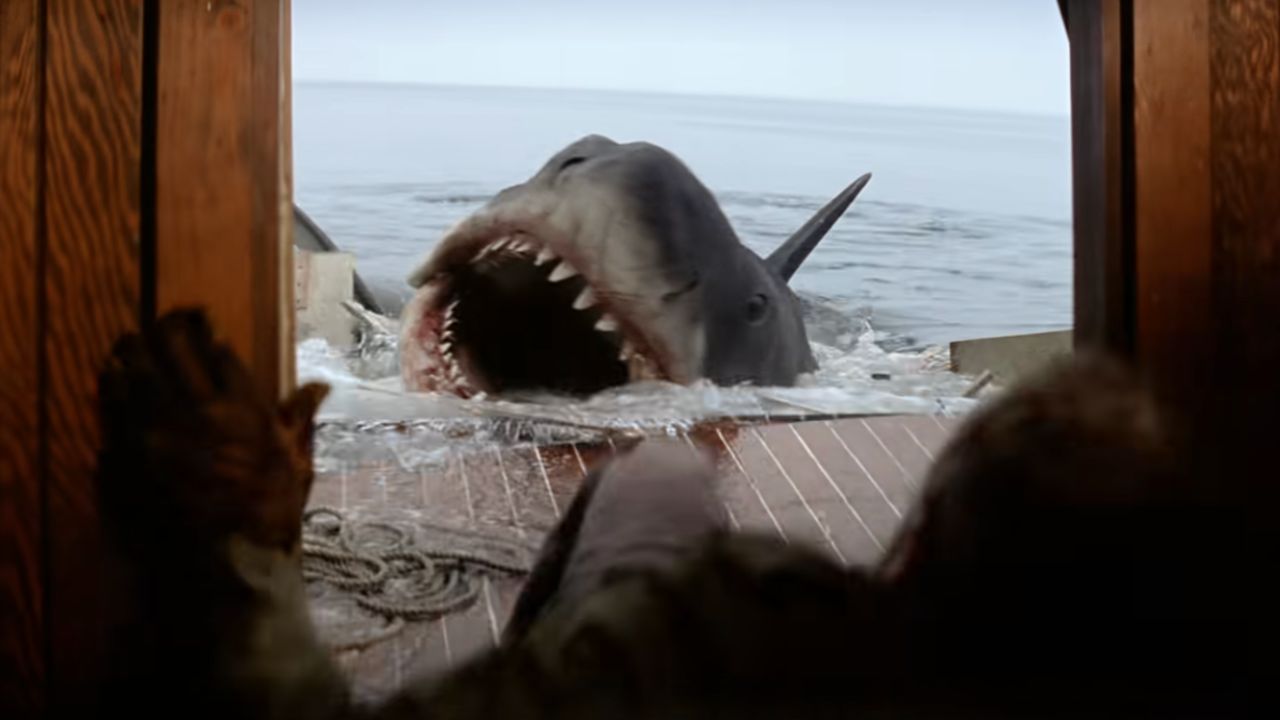
Many consider *Jaws* to be the first true summer blockbuster, and it likely revolutionized filmmaking. The movie launched Steven Spielberg’s career, but it almost derailed it too. While the challenges of making *Jaws* are well-known, Spielberg recently shared new details, highlighting just how difficult the production actually was.
To celebrate the 50th anniversary of *Jaws*, the Academy Museum of Motion Pictures has launched a new exhibition. During a preview event last week, director Steven Spielberg shared some thoughts about making the film with *People* magazine. He confessed that, looking back, he didn’t fully grasp the challenges of the production due to his lack of experience at the time. Spielberg explained…
We simply weren’t prepared for all the problems we faced, beginning with the weather. I was overly confident that we could take a film crew 12 miles into the Atlantic Ocean and shoot a whole movie with a mechanical shark, and I expected it to go smoothly. I didn’t realize that challenging nature and tempting fate would cause everything to go wrong.
Making *Jaws* was famously challenging. The robotic shark often malfunctioned, and shooting on the ocean meant bad weather constantly disrupted filming. This experience led Spielberg to advise Kevin Costner against filming on water for *Waterworld* years later. Ultimately, these issues caused the movie to significantly exceed its planned budget.
Jaws was just the third movie Steven Spielberg directed, and its production was facing major delays and cost overruns. He was worried this could ruin his career, and people even told him the film would be a disaster. Fortunately, Jaws became a huge success, which was essential because a failure could have ended his promising career. He went on to explain…
During the making of Jaws, I honestly believed my directing career was finished. Everyone kept telling me I’d be blacklisted – the movie was massively over budget and behind schedule, and they saw me as a problem. I felt like this film had to be a success, because I was sure I wouldn’t work in the industry again if it failed. Luckily, things turned out well for us.
The filming wasn’t delayed only by bad weather; a significant number of cast and crew members also became ill during production. Spielberg was one of the few who managed to stay healthy. He explained…
During our six months at sea, I was surprised by how many people became ill. I personally never felt seasick, and I believe staying focused on the demands of the production kept me going. Thankfully, we made it through, and what really helped us was being there for each other. That connection – the shared experience of just trying to get through it all – brought us closer as a team.
Despite the film’s ultimate success, Spielberg later revealed the production was deeply traumatic for him, causing panic attacks and years of nightmares. He even coped with the stress by secretly riding the Universal Studios Tour and crying while on the boat – a way to process the difficult experience.
Looking back, making *Jaws* was undoubtedly a success, given its impact on fans, the film industry, and Steven Spielberg’s career. However, achieving that success required a tremendous amount of hard work from everyone involved.
Read More
- 10 Best Horror Shorts on YouTube for a Quick Scare
- Евро обгонит швейцарский франк? Эксперты раскрыли неожиданный сценарий
- 10 Devastating Buffy Episodes Fans Struggle to Rewatch
- 10 Underrated Fall 2025 Anime That Are About to Blow Up on Streaming
- Доллар обгонит гривну? Эксперты раскрыли неожиданный сценарий
- Золото прогноз
- 10 Blockbusters That Still Bombed At The Box Office
- 1 Major ‘Captain America 4’ Villain Was Originally Supposed to Die
- Deathstroke Takes On An Epic Sci-Fi Villain In This Brutal Crossover Event
- 10 Most Disappointing Biopics of Beloved Musicians
2025-09-18 23:09